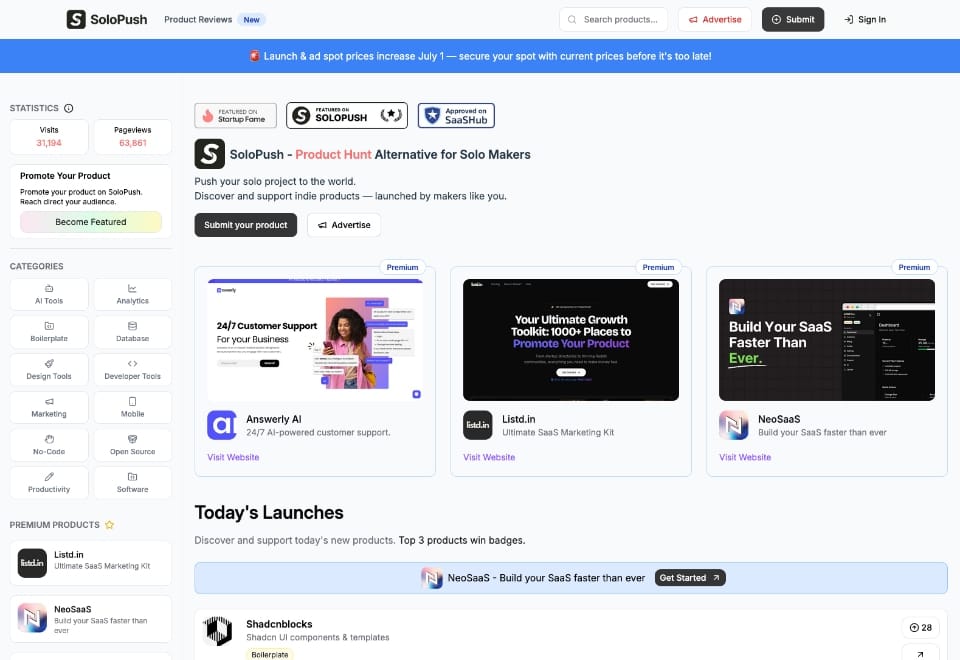Issue #9

Vibe Coding Weekly — Issue Nine is out!
Welcome back 👋! Another week, another batch of AI news, fresh articles, and tech goodness from the Vibe Coding space.
Issue Nine Insights
- Meta launches Superintelligence Labs, teaming up with top AI minds from OpenAI, Google, and more
- Cloudflare blocks AI crawlers by default to protect creators content
- Cursor drops a web app to manage AI coding agents from anywhere
- LLMs are now a commodity, the real edge is building smart AI agents that get things done
📰 AI Industry News
The most important developments in the AI and software development ecosystem.
Mark Zuckerberg just announced Meta Superintelligence Labs (MSL), a new team focused on pushing AI forward. It’s led by Alexandr Wang, who used to run Scale AI and is now Meta’s Chief AI Officer, with Nat Friedman, ex-GitHub CEO, co-leading on AI products and research. They’ve brought in nearly two dozen top AI experts from places like OpenAI, Anthropic, and Google, including some folks who helped build GPT-4 and Gemini. This move follows Meta’s big $14.3 billion investment in Scale AI and shows they’re serious about competing in the AI space.
Cloudflare is now blocking AI web crawlers by default to protect creators from having their content scraped without permission. New site owners will get to choose if AI scrapers can access their sites, and some publishers can even charge AI companies for crawling their content. Big names like The Atlantic and AP are backing this move. Cloudflare’s also working with AI companies to make sure their bots are clearly identified so website owners know what’s coming.
Cursor has launched a new web app that lets developers manage AI coding agents directly from their browser, whether on desktop or mobile. This move expands Cursor's capabilities beyond its original AI-powered IDE, allowing users to assign tasks like writing features or fixing bugs using natural language. The web app also enables monitoring of agents' progress and merging completed changes into the codebase. This development follows Cursor's introduction of background agents and a Slack integration, aiming to streamline the coding process and enhance productivity for developers.
📝 Featured Reads
Stay in the loop with standout articles from the world of AI, coding, and tech trends.
Datadome's latest research shows that AI crawlers, especially those tied to large language models like ChatGPT, are exploding in activity, with nearly a billion requests in just 30 days. These bots now make up over 4% of all legit bot traffic and come in different forms: some scrape data for training, others pull real-time info, and more advanced ones act like full-on users. To handle this, Datadome uses smart filters to decide whether to block, allow, or limit them based on what they’re doing. It’s clear that LLM bots aren’t just a side trend they’re becoming a core part of web traffic, and sites need smarter defenses than just blocking user agents.
Another great read How To Prepare Your API for AI Agents dives into how to make your API more agent-friendly. Since most APIs are still built with humans in mind, AI agents often get tripped up trying to use them. The article lays out some solid tips: write a clear OpenAPI spec, group related endpoints into bigger, more useful chunks (using tools like MCP), and return structured error messages that actually help. It also suggests documenting multi-step workflows and adding something like an llms.txt file so agents can easily discover and understand your API. Basically, it’s all about making your API smarter and easier for AI to navigate.
The article “From Models to Agents” makes the point that LLMs have basically become a commodity, thanks to open-source and better efficiency, they’re everywhere now. What really matters going forward is how you use them in AI agents that can actually get stuff done. It’s less about having the best model and more about building smart systems that solve real problems.
The article "The software engineering squeeze" breaks down how software engineering, once the go-to high-paying career, is getting a serious reality check. For years, demand was sky-high, and companies hired anyone who could pass a coding test. But now? The market’s flooded with average devs, and AI’s making things even trickier. The easy, comfy jobs are disappearing, and just writing code isn’t enough anymore. The real winners are the ones who stay curious, build stuff, learn fast, and go beyond the job description. TL;DR: engineering’s still a great career, but only if you’re all in.
🛠️ Projects built by Vibe Coders
Showcase features a variety of projects built by Vibe Coders using different AI tools (Bolt.new, Lovable, Cursor, Windsurf, etc.)

Another Vibe Coder just hit $7.5K in revenue with a vibe coded app—SoloPush. Launched on April 1st, and just three months in, it’s already brought in $7.5K total revenue, $1K MRR, 1,000+ products listed, 2,200+ users, and 45K+ product views all without any ads or big launch campaigns, just posts on Reddit and Twitter. Listing a product is completely free, with optional paid boosts for more visibility. (Source)
🎧 Recommended Podcast
Tune in to some of the best podcasts on AI and software development—featuring interesting conversations and expert insights. Perfect for your next coffee break.

📺 Videos Worth Watching
These are must-watch videos from the world of AI and the Vibe Coding space.

You can watch the recordings of the Moar Serverless 2025 event on YouTube — a virtual conference focused on serverless, cloud, and AI.
📚 Resources
Useful resources for Vibe Coders and AI enthusiast.

A handy real-time terminal tool to keep an eye on your Claude AI token usage. See how many tokens you’re using, check your burn rate, and get a heads-up on when you might run out.
😂 Vibe Coding Joke

That’s all for today! Keep your curiosity alive and see you next time 👋!